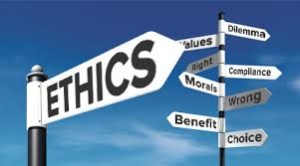Ethics and Compliance Predictions for 2016
 The New Year brings new promise for compliance professionals.
The New Year brings new promise for compliance professionals.
I always sympathize with compliance officers because of their inevitable conflict – their idealism often is confronted by corporate realities – a CEO who fails to live by his or her promise of support for compliance, or the slow assignment of personnel and resources needed to implement an effective compliance program.
When you add to these harsh realities the uptick in enforcement risks against compliance officers, you have a recipe for lowering professional morale and possibly depression. There is one thing you can always count on with compliance professionals: unrelenting optimism and confidence. No challenge is ever too big for a chief compliance officer, but such an attitude comes with a cost – reality can be very difficult to accept.
As we turn to another important year in the continuing rise of the compliance profession, I wanted to take time to address a number of trends and predictions.
- Elevation of the CCO in the Boardroom: CCOs recognize that elevation and independence requires a new and increased importance in the boardroom. In the years to come, the CCO will eventually stand on equal footing as the Internal Auditor and CFO before the Audit/Compliance Committee. This eventual accomplishment will be the product of CCO requests and board sensitivity to learning how to supervise and monitor a compliance program.

- Consolidation of CCO-CEO Relationship: This year will see even greater numbers of CCOs reporting directly to the company CEO. A true partnership is needed between the CEO and CCO to implement an effective ethics and compliance program. Whether on paper or in practice, this relationship has to flourish for an ethics and compliance program to be effective.
- Technology Leveraging: CCOs need real and significant tools. A recent NAVEX Global Survey (here) found that CCOs with automated third-party risk management platforms were more satisfied than those with antiquated paper programs. There is great demand for real and significant technological solutions –the problem is finding the right one for your company and for the compliance industry to produce real and effective solutions.
- Hui Chen’s Impact: The Justice Department’s hiring of Hui Chen as a Compliance Counsel creates a real opportunity for CCOs to leverage influence over corporate leaders on the importance of real and significant compliance programs. Ms. Chen has the experience and the communications skills needed to bring greater focus on corporate compliance programs. DOJ should take advantage of this opportunity to move the compliance ball past the US Sentencing Guidelines and even beyond its 2012 FCPA Guidance. The compliance profession should engage Ms. Chen and seek her support and influence through DOJ to bring about a new era in compliance.
 Ethical Decision-Making: As CCOs focus more on promoting a corporate culture of ethics and compliance, CCOs need to pay more attention to establishing important bonds with the business side of the company’s activities. Until business managers accept and embrace their responsibility for compliance in their operations, a CCO will always be behind the curve when it comes to compliance. A CCO is only is good as its business in ensuring effective compliance strategies. CCOs have to focus on two important aspects of this process – first, they need to get a seat at the business table to have any credibility within the company; and second, they have to instill and encourage ethical business decisions. These two concepts can help a business to extend its ethics and compliance values into the most important arena – the company’s business operations.
Ethical Decision-Making: As CCOs focus more on promoting a corporate culture of ethics and compliance, CCOs need to pay more attention to establishing important bonds with the business side of the company’s activities. Until business managers accept and embrace their responsibility for compliance in their operations, a CCO will always be behind the curve when it comes to compliance. A CCO is only is good as its business in ensuring effective compliance strategies. CCOs have to focus on two important aspects of this process – first, they need to get a seat at the business table to have any credibility within the company; and second, they have to instill and encourage ethical business decisions. These two concepts can help a business to extend its ethics and compliance values into the most important arena – the company’s business operations.















